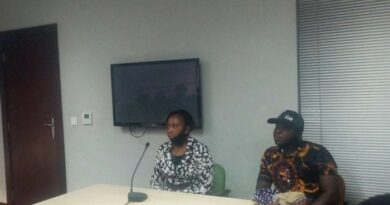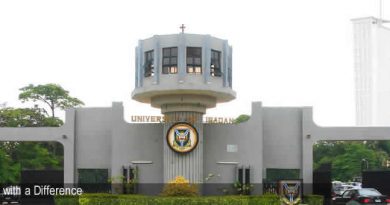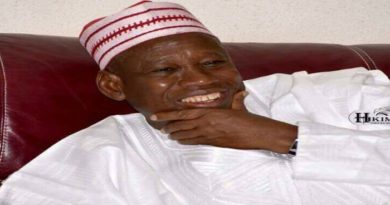SMEs operators continue to groan for lack of loanable funds
Some operators in the Small and Medium Enterprises (SMEs) in Nigeria have expressed their frustration in accessing funds from most Nigerian Deposit Money Banks (DMBs) for running their businesses.
Mr. Uche Moses, a customer of one of the second generation bank, noted that some of the banks claimed to be offering loans to SMEs and private individuals but they end up playing on the intelligence of their customers.
According to Moses, after running the account and maintaining your relationship with the bank for centuries by the time you apply for loan they ask you to bring your whole community if not to bring your grandmother for them to check if her teeth are still complete all in the name of collateral.
More so, Mr. Paul Ugbajeh, a bottled water producer at Iyana Ipaja, said that he had tried to process the various types of bank loans through two different microfinance banks, to no avail.
“I have tried to access the loans to expand my business, by applying to two different microfinance banks but I have been denied. I have provided all the required documents, but have heard nothing from them, and I keep asking.
“I had to approach a friend of mine because there are prospects in water and Ice block business that I want to expand into,” he said.
Similarly, Mr. Segun Kuti-George, Chairman, Nigerian Association of Small Scale Industrialists (NASSI), Lagos Chapter, said that none of his members had been able to access neither the government loans nor the bank loan.
He said that the association has taken deliberate efforts to assist its members in writing presentable proposals submitted to the Small and Medium Enterprises Development Agency (SMEDAN) for processing.
Also speaking to Business247 News Online on phone, Mr. Olufemi Egbesola, President, Association of Small Business Owners, (ASBON), said that none of the members of the association has accessed any loan.
He explained further that most of the small scale operators have turned to relatives to get funds to start or expand their businesses, since the government and banks loans were not forth coming.
“To me, I think the process of accessing the loans is too tedious. You are asked for this, we bring, tomorrow they ask for something else, collateral documents and so on, even after fulfilling all the requirements, we still have not heard anything,” Egbesola said.
However, Mr. T.O Adekanye, an economist, while given a lecture in Lagos on “Credit Management and Bank Lending in Nigeria” blamed the Central Bank of Nigeria (CBN) for this.
He said that the liquidity ratio prescribed by the CBN has created a limitation on the credit operations to these commercial banks, therefore making lending hard.
Business247 News Online also gathered that the issue of the Treasury Single Account (TSA) have also affected these banks.
It will be noted that Nigerian banks are seriously searching for new sources of deposits and means of boosting profits, as a result of the implementations of the Treasury Single Account (TSA).
The new TSA platform which kicks started early this year allows all receipts by MDAs to be made directly to the Consolidated Revenue Fund at the CBN, through an electronic channel process known as e-Collection. The TSA translates to a significant decline in banks’ deposit, as these are monies that are being kept with the banks.
The implication, according to investigations carried out by this medium, is that banks have been further impoverished. Consequently, lenders have drastically been affected by the TSA directive, as this effectively raises to 100 percent, the proportion of public sector funds sterilized with the CBN.
“All banks are reviewing interest rates up on existing loans,” one bank official at a mid- tier lender told Business247 News Online.
A letter to a customer from one of the banks seen by our correspondent, shows average interest on loans up by 3 percent or 300 basis points. “The increase is aligned to current money market realities,” the bank said.
It is also gathered that some banks had increased deposit rates to attract idle funds and adopting aggressive tactics to lure customers to open accounts in a country where 67 percent of the adult population is unbanked.
“There is pressure generally, our targets have been raised to N1 billion a week,” one marketer in a second-generation bank said on grounds of anonymity.
The Governor of the Central Bank of Nigeria, CBN, Godwin Emefiele, while briefing journalists on the communiqué released after last Annual Bankers Committee Retreat recently said that CBN and banks will up their game in developing Nigerian economic through their lending objectives.
The CBN boss said that the retreat also gave the opportunity to exchange ideas with invited ministers about their agenda and plans on lending.
“We had extensive discussions on some of the previous outcomes of the bankers committee which have helped to increase lending to the manufacturing sector, facilitated finance to the power and aviation sectors and we sincerely want to do more.
“It has also helped to sensitise lending to the agriculture sector where we have seen lending increasing from as low as one per cent in 2010/ 2011 to as high four per cent in 2014/2015,” Mr. Emefiele said.





Amazing… this is a valuable websites
Steven Gerrard http://3shop3.com/comment/html/index.php?page=1&id=180401
What’s up, good web-site you have got presently
Daniele De http://mateos.c0.pl/forum/index.php?PHPSESSID=db43e3a918941a66c34dfc3abff2e520&action=profile;u=9713
So useful, looking ahead to returning
David Trezeguet http://www.dfphone.cn/comment/html/index.php?page=1&id=114131